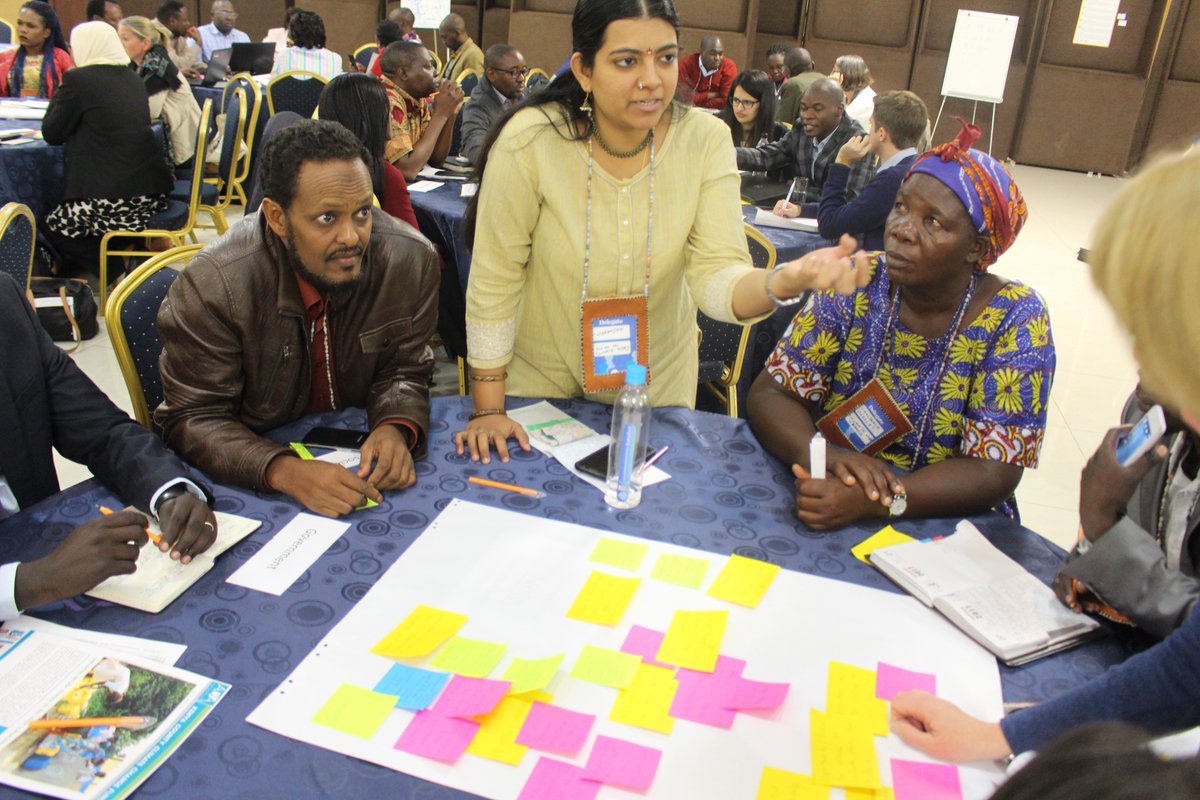On the 13th June Mary Robinson moderated a Gender and Climate Talanoa at the 12th Community Based Adaptation Conference which is hosted this year by the Government of Malawi. Taking place on the 3rd day of CBA12 the Talanoa continued the discussions which had taken place in the previous two days under work stream 1 of CBA which focused on “Transforming ‘lived experience’ and local knowledge into evidence that drives better policies and investments”.
The Talanoa brought together community based adaptation practitioners, academia, government, grassroots representatives and private sector from 45 countries in learning circles to discuss how grassroots women’s representation in decision making can support gender transformative climate action.
Opening the Talanoa Mary Robinson highlighted to participants, “that valuing local and traditional knowledge is a key element of successful adaptation planning” and key for climate justice. Mary Robinson also emphasised the fact that there is a lack of evidence on the value of women’s participation and as practitioners and researchers we need to improve on this and capture the evidence of what we know intuitively to be so; including women’s lived experience and local knowledge in climate policy decision-making produces better results for all.
The Talanoa commenced with a short panel discussion including the following to set the scene for the learning circles:
- Ms Stella Gama; Deputy Director of Forestry, Ministry of Natural Resources, Energy and Mining of Malawi
- Dr Saleem Huq, director of ICCCAD and Coordinator of the Least Developed Countries Universities Consortium on Climate Change
- Ms Constance Okollet, Chairperson, Osukuru United Women’s Network, Uganda
Opening the panel Constance Okollet informed participants that, “it is important for women in the village to get the space to talk and tell their story. It is important to listen to our story”, and that ultimately if polices are to be successful they need to take on board the lived experience at the community level. Building on this Stella Gama reminded those participating that the Gender Action Plan (GAP) adopted at COP23 acknowledges the value of grassroots and local and traditional knowledge and that these voices are important therefore if climate action is to be successful they must be included. Saleem Huq highlighted the contribution the academic community can make especially in training a new generation of young women who can take a lead in addressing the climate challenge.
Following the panel discussions, 20 learning circles took place where participants used the Talanoa Dialogue guiding questions of: 1) where are we now, 2) where do we want to go, and 3) how do we get there to unpack further how grassroots women’s representation in decision making can support gender transformative climate action. The chairs of each learning circle gave feedback to the participants highlighting commitments and proposing actions. . Feedback included the need to, “invert the triangle and put grassroots women at the top” ensuring their voices were heard. Others identified the need to have more champions for gender equality particularly amongst men.
The discussions found that gender inequalities are entrenched in evidence gathering processes – influencing what evidence is sought, what evidence is considered ‘valid’, and who should provide the evidence. This constrains the value of the evidence.
Participants in the Talanoa were encouraged to continue to improve gender equality by, “breaking barriers and extending the boundaries” for women’s meaningful participation. The discussions in the learning circles correspond strongly with the Foundation’s research on enabling women’s participation in which recommended the following:
- Increase the participation of women in climate actions at all levels
- Understand the context in relation to women’s ability to participate
- Shift the emphasis from women’s representation to meaningful participation in climate actions
- Invest in training and capacity building to enable meaningful participation
- Document the good work that is going on to enable women’s participation.
Summing up the rich discussions Mary Robinson recalled some of the recurring words from the feedback, “we need empowerment, safe spaces, we need to challenge the need for participation, we need more capacity building and we must change the narrative. We need more champions and not just women!” The outputs of the discussions will be submitted to the Talanoa Dialogue process to further support discussions on gender and climate change.


